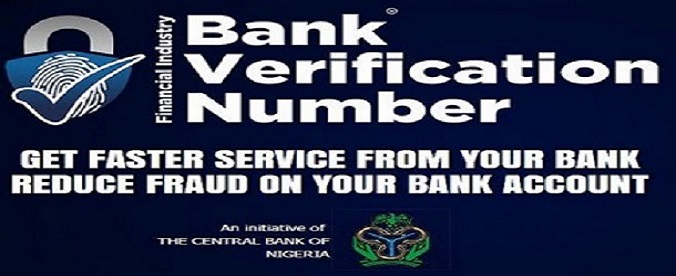E-Financial
Cybersecurity Levy Meant for Financial Institutions, Telcos – Senate:

Senator Shehu Umar Buba, chairman, Senate Committee on National Security and Intelligence, on Sunday, clarified that the recently imposed cybersecurity levy announced by the Central Bank of Nigeria (CBN) is not targeted at individuals operating bank accounts.

Rather, the senator, who sponsored the amendment bill in a statement in Abuja, explained that the levy is aimed explicitly at financial institutions and telecommunication companies.
He said the financial institutions and telecommunication firms are most vulnerable sectors to financial crimes and cyber fraud to enhance cybersecurity measures and national security in the country.
He noted that: “The relevant section of the Cybercrime Act is very clear about the businesses that are required to pay the levy, not the citizens.
“The Act is very explicit about who is responsible for the payment, not Nigerian citizens or individuals.
“The relevant section of the Cybercrime Act 2015 listed the businesses required to pay the levy: telecommunications companies, Internet Service Providers, banks, insurance companies, the Nigerian Stock Exchange and other financial Institutions.
“The organisations in the sectors have been listed in previous circulars by the Central Bank of Nigeria, especially in 2018. The new circular by the CBN further provided many exemptions.”
Buba also clearly explained the amount payable as a cybersecurity levy.
According to him, “It is either 0.005 or 0.5 per cent arithmetically. The figure in the principal act was 0.005 as a fraction, which was converted to the percentage that became 0.5 per cent in the amendment.
“Therefore, the statistics in fractions and percentages are the same.
“The legislator highlighted that the passage of the amendment bill was a collaborative effort of various stakeholders.
“The passage of the amendment bill was a collaborative effort involving the government, industry players, civil society and academia.
“They expressed their contributions and actively participated in the public hearing before the endorsement by the two chambers of the National Assembly.
“After rigorous processes, President Bola Ahmed Tinubu signed the bill into law in February 2024.”
The senator acknowledged the concerns of Nigerians, civil groups and other stakeholders about the current economic situation.
He was reassured that implementing the cybersecurity law was not meant to punish citizens.
He emphasised that the levy was a collective effort to protect national security and the economy, with the financial burden primarily falling on the specified businesses.
The Cybercrime (Prohibition, Prevention, etc.) (Amendment) Act 2024, which President Tinubu signed into law in February, imposes a 0.5 per cent (0.005) levy equivalent to half the value of all electronic transactions by the businesses specified in the Second Schedule of the Act.
The levy will be remitted to the National Cybersecurity Fund, which the Office of the National Security Adviser (ONSA) shall administer.
The circular announcing the levy also exempted some transactions from the cybercrime levy.
They included loan disbursements and repayments, salary payments, intra-account transfers and other financial transactions.
E-Financial
Nigerian Banks End Years of Embargo, Resume Intl Transactions on Naira Cards

Nigerian banks have resumed international transactions on naira-denominated debit cards, marking a significant shift in banking operations for customers who rely on foreign payments.

This is coming nearly three years of suspension.
United Bank for Africa (UBA) and Wema Bank, in separate communications to their customers, announced the restoration of international payment services on their naira cards.
In a notice to its customers, UBA said the reactivation of international transactions on its premium naira cards aligns with its commitment to delivering improved and seamless banking experiences.
“We are pleased to inform you that all UBA Premium Naira Cards, including Gold, Platinum, and World variants, are now enabled for international transactions,” the bank stated.
“This means you can now use your Premium Naira Card for global payments — including online shopping, POS, and ATM transactions — with ease and flexibility. If you haven’t used your card recently, now is a great time to rediscover the convenience and prestige that comes with being a UBA premium cardholder.”
Similarly, Wema Bank announced that its customers can now make dollar payments on international platforms using their naira Mastercards.
“Your Wema Naira Mastercard just went global!” the bank said. “Now you can pay in dollars on all your favourite international platforms — Amazon, eBay, AliExpress, Netflix, Spotify, YouTube.”
The development marks a major relief for Nigerian customers who have had to rely on dollar cards or alternative payment methods since most banks suspended international usage of naira cards in 2021 due to foreign exchange scarcity.
E-Financial
Flutterwave Secures 20 more US Money Transmitter Licences

Flutterwave, Africa’s leading payments technology company, today announced the relaunch of its flagship remittance solution, Send App, across U.S. states following its newly acquired Money Transmitter Licences (MTLs).

This comes after Flutterwave secured 20 additional MTLs in the U.S., adding to the 14 licenses the brand has held since 2023.
Altogether, this achievement raises Flutterwave’s total number of direct licenses to 34, allowing the company to operate across many U.S. states and territories without partners or intermediaries.
Users in the U.S. can now send money to Nigeria, Ghana and Egypt, unlocking new remittance corridors that were previously unavailable.
Alongside this expansion, the onboarding process has been streamlined with a quick ID check, making it faster and easier for new users to get started.
Additional improvements include optimised payment support for US-issued Visa and Discover cards, enhanced security measures to safeguard transactions and maintain compliance, and improved in-app flows for a simpler, more efficient sending experience.
This return also highlights Flutterwave’s commitment to delivering a seamless, secure, and regulatory-compliant user experience for all Send App customers in the U.S. Users can now send money from DC, Georgia, Maryland, North Carolina, Michigan, South Carolina, Tennessee.
Other U.S. states and territories where Send App by Flutterwave supports outward remittances include Alaska, Arizona, Arkansas, Delaware, Idaho, Illinois, Indiana, Iowa, Louisiana, Maine, Minnesota, Mississippi, and Missouri, Nebraska, New Hampshire, New Mexico, North Dakota, Oklahoma, Oregon, Puerto Rico, Rhode Island, South Dakota, Utah, Washington, West Virginia, Wisconsin, and Wyoming.
Commenting on the relaunch, Olugbenga “GB” Agboola, Flutterwave Founder and CEO, said, “By expanding our reach and enhancing our services, we are empowering millions of Africans in the U.S. to maintain strong financial ties with their home countries, support their families, and contribute to economic development across the continent. Additionally, we are staying true to our core mission of bridging Africa with the global economy and vice versa.”
Earlier this year, Flutterwave integrated Swap into Send App for seamless FX transactions and strengthened its services in Ghana by securing approval for inward remittance from the Bank of Ghana.
E-Financial
Court Affirms NIBSS Authority to Manage BVN

Federal High Court in Abuja on Friday affirmed the authority of the Nigeria Inter-Bank Settlement System (NIBSS), to manage the Bank Verification Number (BVN), database across the country, in line with the Central Bank of Nigeria (CBN), Act and other relevant banking laws.

This is according to a judgment delivered by Justice James Omotosho on Friday.
Wolemi Esan, senior advocate of Nigeria, NIBSS’s counsel, and Kofo Abdulsalam-Alada, lead counsel for the CBN, among others, had sought a restraining order to prevent any institution in Nigeria from challenging the agency’s statutory authority to maintain and manage the BVN database.
This comes as NIBSS had alleged that Digital Rights Lawyers Initiative filed multiple suits, either directly or through proxies, challenging its authority to manage the BVN database and claiming that such management violates constitutional privacy rights.
However, Justice Omotosho, delivering his judgment, said the BVN does not infringe on the constitutional right to privacy.
“The initiative does not infringe on the constitutional right to privacy but rather serves as a necessary tool for safeguarding public interest and enhancing financial security.
“NIBSS has the power to manage the BVN,” the judge said, citing relevant CBN laws.
“The court grants the reliefs of NIBSS as prayed,” he stated.

 Telecom1 day ago
Telecom1 day agoMTN Nigeria Debuts Game-Changing CPaaS Platform at NextNow Forum

 Telecom2 days ago
Telecom2 days agoNCC Approves MTN, 9Mobile Roaming Collaboration Deal

 E-Financial1 day ago
E-Financial1 day agoNAICOM Issues New Licenses to SanlamAllianz Life, General Insurance

 E-Financial1 day ago
E-Financial1 day agoGTCO to Become First Nigerian Bank to List on London Stock Exchange

 News1 day ago
News1 day agoAMCON Confirms ₦100Bn Sale of Ibadan DisCo Amid Legal Disputes

 E-Business1 day ago
E-Business1 day agoDomain of Deception as Attackers Deploy Spyware Under Guise of Legal Threats

 E-Financial2 days ago
E-Financial2 days agoWorld Bank Approves Extra $65m for Nigeria’s SPESSE

 E-Financial2 days ago
E-Financial2 days agoEcobank Taps Google Cloud to Deepen Financial Inclusion



























